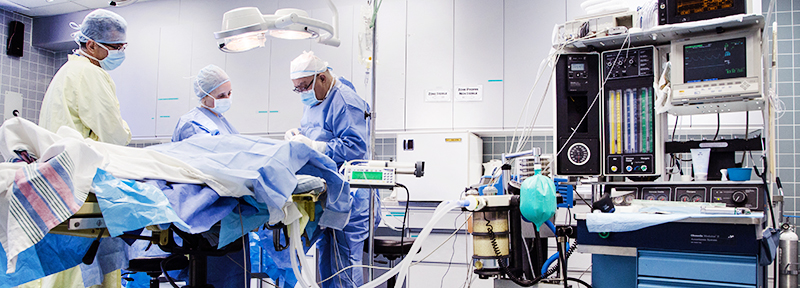Helping you better understand anesthesia

Many patients are afraid of anesthesia:
> afraid of having nausea or vomiting after surgery
> afraid of not waking up
> afraid of pain after surgery
At the clinic of Dr. R. Moufarrege, a team of anesthesia technician and anesthesiologist will take care of you providing safe and modern anesthesia. Successful anesthesia is based on the precise knowledge of surgery and the surgeon’s habits. But let’s first go through the most common patient concerns and our responses to this…
Scared of waking up during surgery
One of the main concerns is: will I wake up during surgery? The phenomenon is called ‘Awareness’ and has been recently publicized in a Hollywood movie. ‘Awareness’ occurs very rarely: only 1 in 1000 patients might have memories from surgery, in the overwhelming majority this consists of sounds or semi-conscious perceptions. At the clinic, we are constantly monitoring all vital signs and use our vast experience to minimize this risk. So-called ‘Depth of anesthesia’ monitors can help to give you the right amount of anesthetic drugs for your surgery: they are sophisticated devices which record brain waves and convert them into a value which indicates to the anesthesiologist how deep the patient is asleep. Dr. Mouffarege’s clinic is the only plastic surgery clinic in Montreal offering this monitoring method to his patients. In addition, the monitoring device used is the latest and most advanced monitoring device currently on the market in Canada. Nothing can be 100%: but we want to make sure that the risk of awareness is as small as possible.
Scared of not waking up
Very often, patients tell us before surgery: please make sure I wake up… The wakeup period after surgery is as important as falling asleep during the induction of anesthesia; at the right moment, the anesthesiologist will stop the anesthesia drugs allowing the patient to wake up quickly and comfortably. The depth of anesthesia monitor used in the clinic helps the anesthesiologist to adjust the doses of the anesthesia drugs more precisely and choose the right moment to stop them. We will make sure that you wake up comfortably and quickly after surgery…

Will I have pain after surgery?
We try to do everything we can during surgery to give you pain drugs to avoid pain to occur. We try to time the administration of pain drugs in such a way that you wake up comfortably and as painfree as possible; should pain occur in the recovery room, the recovery room nurse, highly trained and with lots of experience, will give you appropriate drugs for your pain, as prescribed by the anesthesiologist. A specific pain after general anesthesia is pain in the throat or discomfort; this so-called pharyngolaryngeal discomfort is more common after the insertion of endotracheal tubes, which pass the vocal cords into the trachea, the breathing part of the your body. For some types of surgery, these tubes need to be inserted; however, whenever possible, we provide anesthesia using so-called laryngeal masks, which are less invasive and cause less discomfort after surgery.
Now, let us walk you through a typical anesthesia…
You will first be seen by the anesthesiologist… We will meet you in the waiting area and talk to you about your health, your past experiences with surgery or anesthesia, your habits and any other health related issues. We will make sure that you have sufficient time to ask all the questions you want to ask and try to be as diligent in our answers as possible. We will then invite you to the operating room where a small catheter is inserted into a vein of your arm in order to give you fluids and medication during surgery. Dr. Moufarrege will meet you again before we start the anesthesia… Standard monitors are applied to measure vital signs, such as your heart rate, blood pressure or oxygen content of the body…using superficial electrodes, which do not hurt… We will slowly administer some intravenous medication; you will fall asleep quickly…we will then insert either a laryngeal mask or an endotracheal tube to allow our anesthesia machine to take over your breathing during surgery…. During surgery, a respiratory technician and anesthesiologist will watch for your safety and comfort… Right after the end of surgery, you will wake up, in our experience usually within 5 min…we will make sure that you are wide awake before we transfer you to the recovery room…you stay there for 1-2 hours in general, before you are transferred to the waiting area for another 1-2 hours….depending on the length of surgery… We hope that this information is useful for you, should you have any other question, please contact us by email or phone and we will try to answer all the questions you might have… We would like to make your surgery the safest and most comfortable experience…